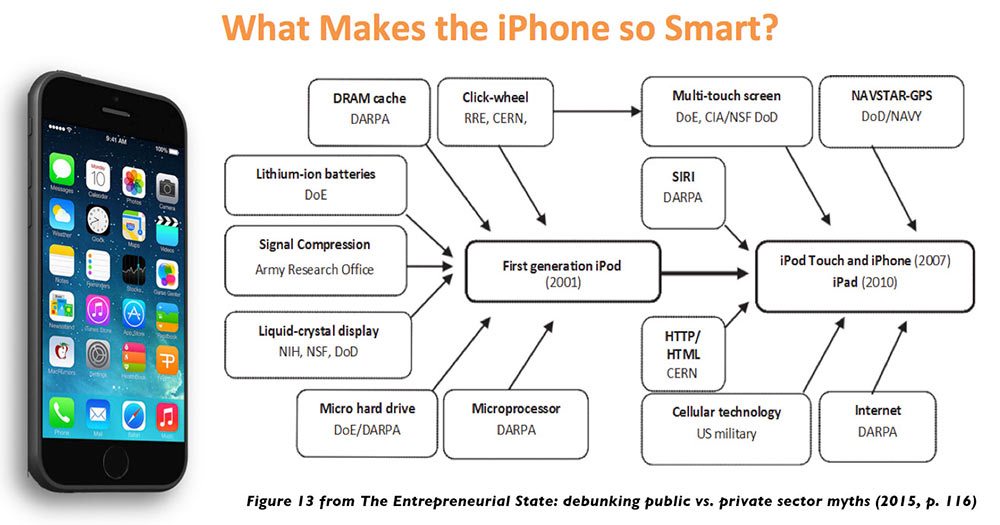Aris Chatzistefanou
The picture of a hipster taking a selfie during G20 protests in Hamburg has gone viral despite the fact that many have questioned its authenticity.
But authenticity is not the issue here.
For free market bigots having an iPhone and protesting capitalism is contradiction in terms. According to them every achievement of modern science and technology must be a product of free market capitalism.
But is it?
Let’s first have a look at a very short excerpt of the documentary THIS IS NOT A COUP where the British Economist Ann Pettifor explains that very few companies owe as much to the public sector as Steve job’s creation does.
“Mr. Apple” Ann Pettifor told us, “needed the American government to invest in the basic elements of the iPhone in order for him to develop it as a private product. He himself was not entrepreneurial enough to invent the internet and all of those major elements of the iPhone which could then be privatized and used in the private sector”.
A few years earlier economist Mariana Mazzucato took up the task of analyzing the components of every single Apple device one by one. And inside the company’s bitten apple she would always spot what neoliberals would call the “worm of the state”. . ,
In her book “The Entrepreneurial State” she conducted a thorough study on how almost every gadget we use today, owes its existence to public research programs that took place at universities or army research centers.
Apple phone’s screen for example, owes its existence to past studies of the University of Delaware (which is publicly founded) and even to some projects of the CIA.
That same device wouldn’t even have a GPS if British Navy and US Defense Department scientists hadn’t been working overtime nightshifts.
As for the phone’s battery, it is based on a technology that has been developed by the American Department of Energy and the US National Research Foundation.
In the end, all of the components that the innovative Steve Jobs gathered in order to make the device, were paid by tax payers around the world many years ago, but instead of becoming common property, they got privatized and fallen to the hands of the big companies.
But even investment programs, into which companies like Apple base their activities (ie “seizing” other people’s inventions), would not exist without the intervention of the American Federal Government.
Ann Pettifor explained that in times of crisis, private sector is like a rat and the state is like a lion; willing to take action despite the risk. In essence, states become much more entrepreneurial. On the other hand, it is hard to believe how nervous and anti-business the private sector becomes when the conditions are not ideal.
Whether as a mouse against the lion of the state, or as a worm inside a fruit, Apple might be one of the most subsidized creations of the last century.
A legacy that’s not so pleasant for Steve Jobs – the Messiah of the new American economy.










Δεν υπάρχουν σχόλια:
Δημοσίευση σχολίου
To μπλόκ " Στοχσμός-Πολιτική" είναι υπεύθυνο μόνο για τα δικά του σχόλια κι όχι για αυτά των αναγνωστών του...Eπίσης δεν υιοθετεί απόψεις από καταγγελίες και σχόλια αναγνωστών καθώς και άρθρα που το περιεχόμενο τους προέρχεται από άλλες σελίδες και αναδημοσιεύονται στον παρόντα ιστότοπο και ως εκ τούτου δεν φέρει οποιασδήποτε φύσεως ευθύνη.